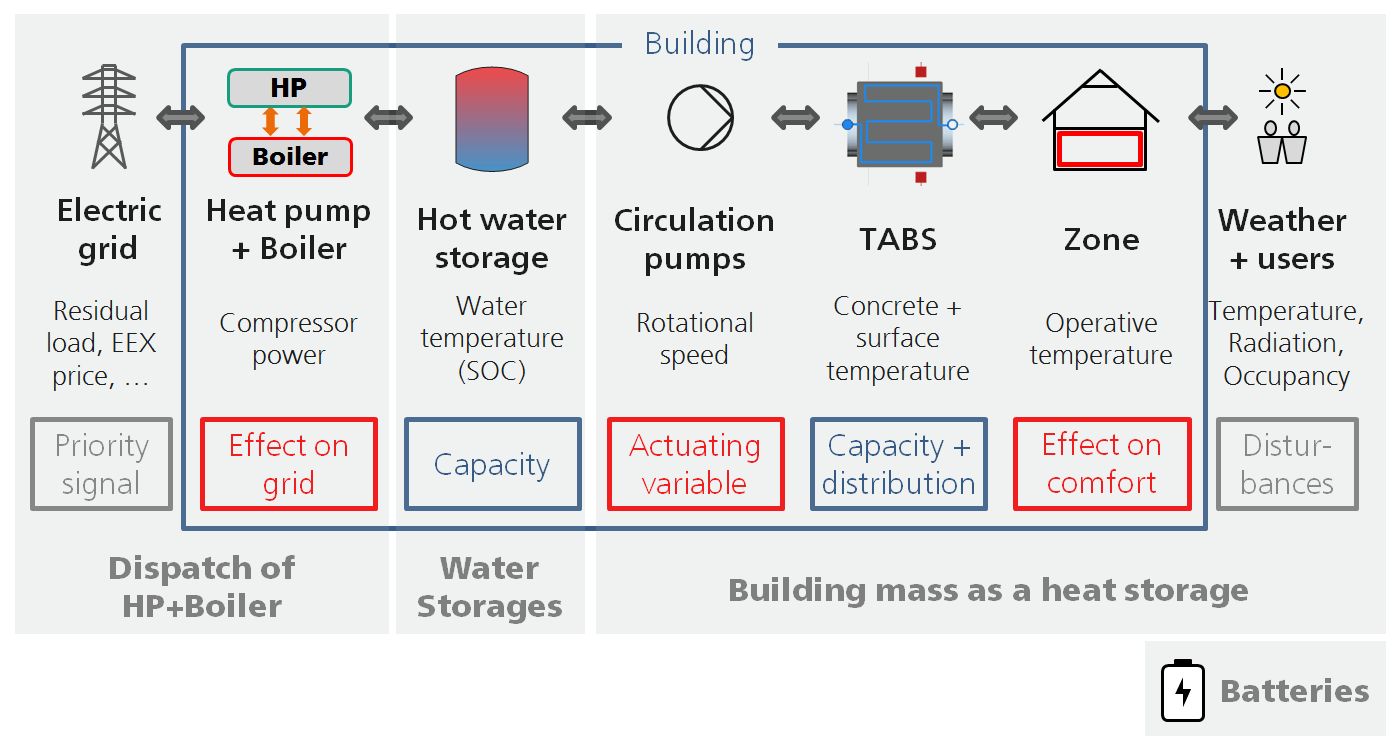| Duration: | January 2016 - December 2019 |
| Auftraggeber / Zuwendungsgeber: |
German Federal Ministry of Economics and Technology (BMWi), Projektträger Jülich |
| Kooperationspartner: | TU Dresden, Hochschule Biberach, Hochschule Ruhr West, Robert Bosch GmbH |
| Webseite: | www.netzdienlichegebaeude.de |
| Projektfokus: |
FlexControl – Grid-Supportive Operating Strategies for Efficient Heating and Cooling of Buildings in the Trade, Commerce and Services (TCS) Sector

In the future, buildings will be required to operate, i.e. supply heating and cooling, in a grid-supportive manner. Due to the growing share of intermittent renewable energy sources in the grid, the German energy system has to increasingly deal with large fluctuations in electricity production over time. Building services must adapt to this new situation. In the transition to a predominantly decentralized energy supply, local or regional differences between electricity supply and demand will occur, which places higher demands on the grid stability. An approach to balance out the differences in the electricity supply and demand is called Demand Side Management (DSM), which supports flexibly varying electricity demand.
Within the cooperative project “FlexControl”, which began in 2016, novel and practical operating strategies for an energy efficient and grid-supportive heating and cooling supply are developed for new and existing buildings in the TCS sector. As a first step, the operating requirements of the building and system operators in the TCS sector are collected by conducting a comprehensive survey. In particular, the survey shall provide information on what types of technologies are actually being used for heating and cooling buildings as well as investigate the operators’ willingness and motivations to participate in a grid-supportive operation given different incentive schemes. The survey findings together with simulation models, which incorporate algorithms to optimize grid-supportive operation, will be used to determine different control strategies. From the optimal system performance, simple and practice-oriented control strategies will be derived by pattern recognition. These control strategies will first be implemented in Hardware in the Loop (HiL) test stands and subsequently tested under real operating conditions in three different demonstration buildings.